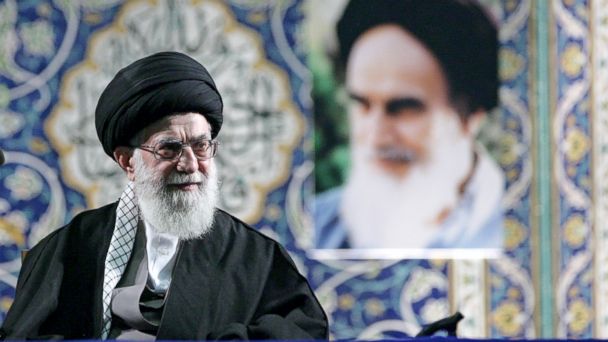When Will the Iran Nuclear Deal Actually Start?

Image credit: leader.ir
America reached a diplomatic landmark in its deal with Iran, but the details are still a bit hazy.
Case in point: it's unclear when the deal will actually take effect, and teams of experts will meet in Vienna on Monday to figure that out.
The United States and world powers touted a six-month freeze in Iran's nuclear program, in exchange for rolled-back sanctions over that same timeframe. The goal was to create six months of leeway to reach a comprehensive deal that would end Iran's progress toward weapons-grade uranium and assure the world that its nuclear program is peaceful.
But that six-month clock hasn't yet started ticking, and the U.S. State Department hasn't indicated when it might.
The agreement, finalized on Nov. 24 in Geneva, called for a team from Iran and the world powers with which it negotiated - the U.S., U.K., France, Germany, China, Russia and the European Union - to figure out the implementation later.
For instance, Iran agreed to enhanced monitoring from the International Atomic Energy Agency (IAEA), and to provide more schematics and maps of its nuclear facilities, but it was left unclear where specifically inspectors can go and how often. Also unclear was what those documents must specifically contain. The four-page deal inked in Geneva provides the general requirements, but another phase of negotiation will soon unfold over the technicalities.
That process will soon begin.
In Vienna on Monday, technical experts from Iran, the U.S., and the other world powers will meet for the first time to discuss how to implement the specific requirements of the Geneva deal, a State Department official said. Higher-level talks will almost certainly follow.
The State Department has declined to predict when those negotiations will be finished, so it remains unclear when the "first step" will take effect - and when the six-month countdown will begin.
In the meantime, Iran has yet to submit to additional nuclear monitoring, and the U.S. and world powers have yet to roll back sanctions.
The State Department has continued its sales pitch to skeptical members of Congress - Republicans and Democrats alike - who want to buck the administration and seek to enact new sanctions on their own, possibly over President Obama's veto. Doing so would likely invalidate the deal with Iran, which calls for no new oil sanctions over the six-month timeframe.
In hammering out a comprehensive deal, international negotiators will likely need all the time they can get.
"Getting to a comprehensive agreement will be very, very difficult," U.S. Under-Secretary of State for Political Affairs Wendy Sherman, a key player in the Iran talks, told the PBS NewsHour this week.
The interim deal could last even longer: Unmentioned by top diplomats when they announced it, written into the agreement is a provision that, at the end of the six months, both sides can renew the "first step" agreement if they see fit. Technically, the preliminary nuclear deal could last a year.